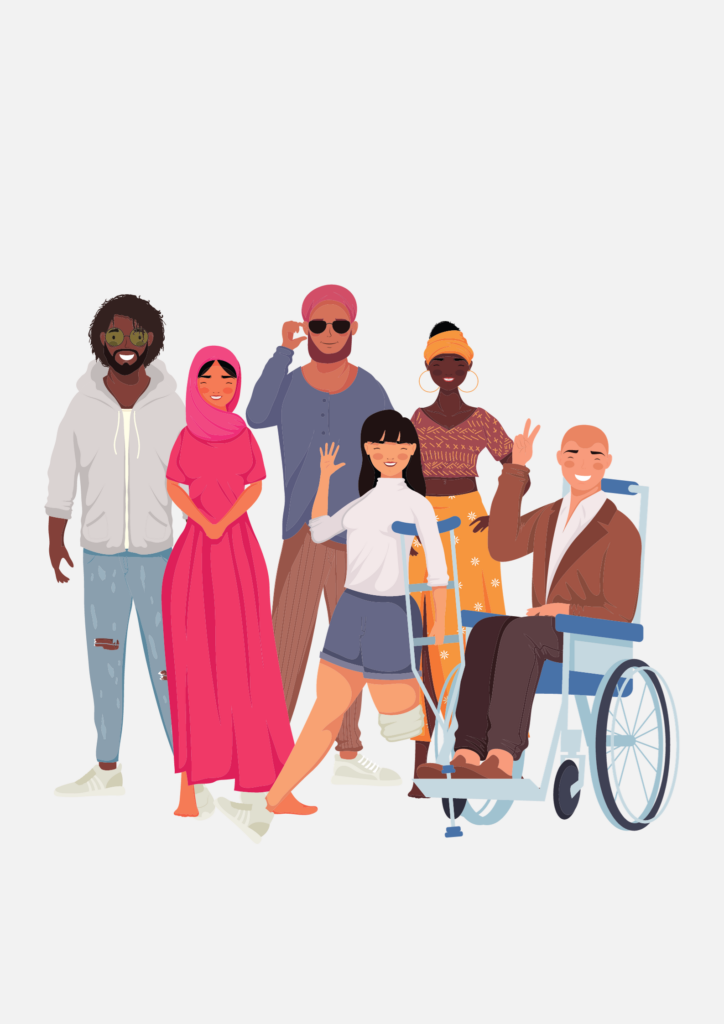Tutors working in the education sector encounter many students from diverse and varied backgrounds, personalities, cultures and needs daily. However, the question arises: do tutors wield the requisite tools to fashion a learning environment that is truly inclusive, one that recognizes and accommodates the multifaceted diversity among learners?
To embark on this journey, tutors must familiarize themselves with each student, creating a personalized approach that accommodates their unique requirements. Three fundamental steps can guide tutors in crafting an inclusive learning environment: attentive listening and observation, fostering open dialogue through thoughtful questioning, and continuous self-reflection to refine and adapt teaching methods.
By embracing this holistic strategy, tutors position the learner at the heart of the education process, ensuring a tailored approach that caters to specific needs. This proactive stance not only promotes a sense of belonging but also enhances the overall learning experience.
The question then arises: why is inclusive education of such paramount significance?
According to UNICEF, “Inclusive education is the most effective way to give all children a fair chance to go to school, learn and develop the skills they need to thrive. Inclusive education means all children in the same classrooms, in the same schools. It means real learning opportunities for groups who have traditionally been excluded – not only children with disabilities, but speakers of minority languages too. Inclusive systems value the unique contributions students of all backgrounds bring to the classroom and allow diverse groups to grow side by side, to the benefit of all.”” Inclusive education thus transcends traditional boundaries, extending learning opportunities to historically marginalized groups, including children with disabilities and speakers of minority languages. It celebrates the unique contributions that students from all backgrounds bring to the classroom, fostering an environment where diverse groups grow together, mutually benefiting each other.
As can be understood, inclusive education is the best way to provide equal opportunities to all students and support them in the best possible way in developing their aptitudes and skills for their academic and personal growth. Consequently, it is up to the education system to adapt to the student and his or her specific needs and not the other way around. This is why it is crucial that tutors are trained in inclusive education, its principles, and methodologies. For those currently engaged in tutoring or aspiring to join this noble profession, a not-to-be-missed opportunity awaits. Our MOOC for Tutors e-learning course features a dedicated module on inclusive education. For more information, visit https://mooc4tutors.eu/ and take a significant stride towards becoming a tutor who champions inclusivity in education.

References
Inclusive education. (s.d.). UNICEF. https://www.unicef.org/education/inclusive-education#:~:text=Inclusive%20education%20means%20all%20children,speakers%20of%20minority%20languages%20too
Unesco. (s.d.). GLOBAL EDUCATION MONITORING REPORT 2020 – Inclusion and education: ALL MEANS ALL. https://unesdoc.unesco.org/in/documentViewer.xhtml?v=2.1.196&id=p::usmarcdef_0000373718&file=/in/rest/annotationSVC/DownloadWatermarkedAttachment/attach_import_d9068404-1023-4c95-98b3-0d768a5ceea7?_=373718eng.pdf&locale=en&multi=true&ark=/ark:/48223/pf0000373718/PDF/373718eng.pdf#p24
What are the types of diversity? (s.d.). Recruiting Resources: How to Recruit and Hire Better. https://resources.workable.com/hr-terms/the-types-of-diversity
